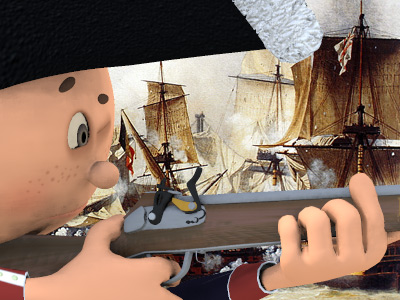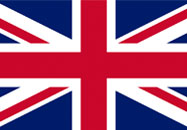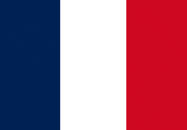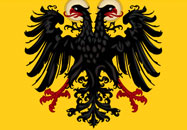Napoleonic Wars (1803-1815)
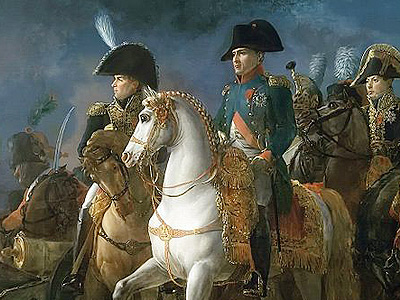
War of the Fifth Coalition 1809
The Fifth Coalition (1809) of Britain and Austria against France formed as Britain engaged in the Peninsular War in Spain and Portugal. The sea became a major theatre of war against Napoleon's allies. During the time of the Fifth Coalition, the Royal Navy won a succession of victories in the French colonies. On land the major battles included Battle of Raszyn, Battle of Aspern-Essling, and Battle of Wagram.

Surrender of Madrid (Gros), 1808. Napoleon enters Spain's capital during the Peninsular War

Surrender of Madrid (Gros), 1808. Napoleon enters Spain's capital during the Peninsular War
( Click image to enlarge)
On land, the Fifth Coalition attempted few extensive military endeavours. One, the Walcheren Expedition of 1809, involved a dual effort by the British Army and the Royal Navy to relieve Austrian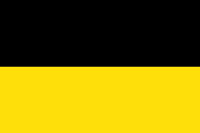 Austrian Empire was a Central-Eastern European and multinational great power from 1804 to 1867, created by proclamation out of the realms of the Habsburgs. During its existence, it was the third most populous monarchy in Europe after the Russian Empire and the United Kingdom. Along with Prussia, it was one of the two major powers of the German Confederation. The empire was proclaimed by Francis II in 1804 in response to Napoleon's declaration of the First French Empire. forces under intense French pressure. It ended in disaster after the Army commander, John Pitt, 2nd Earl of Chatham, failed to capture the objective, the naval base of French-controlled Antwerp. For the most part of the years of the Fifth Coalition, British military operations on land (apart from the Iberian Peninsula) remained restricted to hit-and-run operations executed by the Royal Navy, which dominated the sea after having beaten down almost all substantial naval opposition from France
Austrian Empire was a Central-Eastern European and multinational great power from 1804 to 1867, created by proclamation out of the realms of the Habsburgs. During its existence, it was the third most populous monarchy in Europe after the Russian Empire and the United Kingdom. Along with Prussia, it was one of the two major powers of the German Confederation. The empire was proclaimed by Francis II in 1804 in response to Napoleon's declaration of the First French Empire. forces under intense French pressure. It ended in disaster after the Army commander, John Pitt, 2nd Earl of Chatham, failed to capture the objective, the naval base of French-controlled Antwerp. For the most part of the years of the Fifth Coalition, British military operations on land (apart from the Iberian Peninsula) remained restricted to hit-and-run operations executed by the Royal Navy, which dominated the sea after having beaten down almost all substantial naval opposition from France France, officially the French Republic is transcontinental country predominantly located in Western Europe and spanning overseas regions and territories in the Americas and the Atlantic, Pacific and Indian Oceans. France reached its political and military zenith in the early 19th century under Napoleon Bonaparte, subjugating much of continental Europe and establishing the First French Empire. and its allies and blockading what remained of France's naval forces in heavily fortified French-controlled ports. These rapid-attack operations were aimed mostly at destroying blockaded French naval and mercantile shipping and the disruption of French supplies, communications, and military units stationed near the coasts. Often, when British allies attempted military actions within several dozen miles or so of the sea, the Royal Navy would arrive, land troops and supplies, and aid the coalition's land forces in a concerted operation. Royal Navy ships even provided artillery support against French units when fighting strayed near enough to the coastline. The ability and quality of the land forces governed these operations. For example, when operating with inexperienced guerrilla forces in Spain
France, officially the French Republic is transcontinental country predominantly located in Western Europe and spanning overseas regions and territories in the Americas and the Atlantic, Pacific and Indian Oceans. France reached its political and military zenith in the early 19th century under Napoleon Bonaparte, subjugating much of continental Europe and establishing the First French Empire. and its allies and blockading what remained of France's naval forces in heavily fortified French-controlled ports. These rapid-attack operations were aimed mostly at destroying blockaded French naval and mercantile shipping and the disruption of French supplies, communications, and military units stationed near the coasts. Often, when British allies attempted military actions within several dozen miles or so of the sea, the Royal Navy would arrive, land troops and supplies, and aid the coalition's land forces in a concerted operation. Royal Navy ships even provided artillery support against French units when fighting strayed near enough to the coastline. The ability and quality of the land forces governed these operations. For example, when operating with inexperienced guerrilla forces in Spain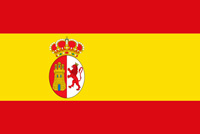 Spain or the Kingdom of Spain, is a country primarily located in southwestern Europe with parts of territory in the Atlantic Ocean and across the Mediterranean Sea. A major country of the Age of Discovery, Spain began the colonization of the New World in 1492 developing one of the largest empires in history and underpinned the emergence of a global trading system primarily fuelled by precious metals., the Royal Navy sometimes failed to achieve its objectives because of the lack of manpower that the Navy's guerrilla allies had promised to supply.
Spain or the Kingdom of Spain, is a country primarily located in southwestern Europe with parts of territory in the Atlantic Ocean and across the Mediterranean Sea. A major country of the Age of Discovery, Spain began the colonization of the New World in 1492 developing one of the largest empires in history and underpinned the emergence of a global trading system primarily fuelled by precious metals., the Royal Navy sometimes failed to achieve its objectives because of the lack of manpower that the Navy's guerrilla allies had promised to supply.
Economic warfare continued: the French Continental System against the British naval blockade of French-controlled territory. Due to military shortages and lack of organization in French territory, many breaches of the Continental System occurred as French-dominated states tolerated or even encouraged trade with British smugglers. In terms of economic damage to Great Britain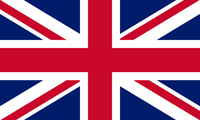 The United Kingdom of Great Britain and Ireland was a sovereign state in Northwestern Europe that comprised the entirety of the British Isles between 1801 and 1922. The United Kingdom, having financed the European coalition that defeated France during the Napoleonic Wars, developed a large Royal Navy that enabled the British Empire to become the foremost world power for the next century., the blockade was largely ineffective. As Napoleon
The United Kingdom of Great Britain and Ireland was a sovereign state in Northwestern Europe that comprised the entirety of the British Isles between 1801 and 1922. The United Kingdom, having financed the European coalition that defeated France during the Napoleonic Wars, developed a large Royal Navy that enabled the British Empire to become the foremost world power for the next century., the blockade was largely ineffective. As Napoleon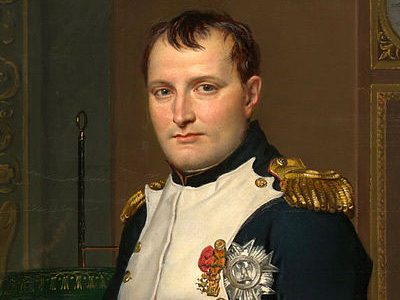 Napoleon Bonaparte (1769-1821), was a French military and political leader who rose to prominence during the French Revolution and led several successful campaigns during the French Revolutionary Wars. As Napoleon I, he was Emperor of the French from 1804 until 1814, and again in 1815. One of the greatest commanders in history, his wars and campaigns are studied at military schools worldwide. Napoleon Bonaparte » realised that extensive trade was going through Spain and Russia
Napoleon Bonaparte (1769-1821), was a French military and political leader who rose to prominence during the French Revolution and led several successful campaigns during the French Revolutionary Wars. As Napoleon I, he was Emperor of the French from 1804 until 1814, and again in 1815. One of the greatest commanders in history, his wars and campaigns are studied at military schools worldwide. Napoleon Bonaparte » realised that extensive trade was going through Spain and Russia Russian Empire was an empire and the final period of the Russian monarchy from 1721 to 1917, ruling across large parts of Eurasia. The rise of the Russian Empire coincided with the decline of neighbouring rival powers: the Swedish Empire, the Polish–Lithuanian Commonwealth, Qajar Iran, the Ottoman Empire, and Qing China. Russia remains the third-largest empire in history, surpassed only by the British Empire and the Mongol Empire., he invaded those two countries. He tied down his forces in Spain, and lost very badly in Russia in 1812.
Russian Empire was an empire and the final period of the Russian monarchy from 1721 to 1917, ruling across large parts of Eurasia. The rise of the Russian Empire coincided with the decline of neighbouring rival powers: the Swedish Empire, the Polish–Lithuanian Commonwealth, Qajar Iran, the Ottoman Empire, and Qing China. Russia remains the third-largest empire in history, surpassed only by the British Empire and the Mongol Empire., he invaded those two countries. He tied down his forces in Spain, and lost very badly in Russia in 1812.
Both sides entered further conflicts in attempts to enforce their blockade; the British fought the United States in the War of 1812 (1812–15), and the French engaged in the Peninsular War (1808–14) to prevent smuggling into Spain. The Iberian conflict began when Portugal continued trade with Britain despite French restrictions. When Spain failed to maintain the Continental System, the uneasy Spanish alliance with France ended in all but name. French troops gradually encroached on Spanish territory until they occupied Madrid, and installed a client monarchy. This provoked an explosion of popular rebellions across Spain. Heavy British involvement soon followed.
Austria, previously an ally of France, took the opportunity to attempt to restore its imperial territories in Germany as held prior to Austerlitz. Austria achieved some initial victories against the thinly spread army of Marshal Berthier. Napoleon had left Berthier with only 170,000 men to defend France's entire eastern frontier (in the 1790s, 800,000 men had carried out the same task, but holding a much shorter front).
After defeats in Spain suffered by France, Napoleon took charge and enjoyed success, retaking Madrid, defeating the Spanish and forcing a withdrawal of the heavily out-numbered British army from the Iberian Peninsula (Battle of Corunna, 16 January 1809). But when he left, the guerrilla war against his forces in the countryside continued to tie down great numbers of troops. Austria's attack prevented Napoleon from successfully wrapping up operations against British forces by necessitating his departure for Austria, and he never returned to the Peninsular theatre. The British then sent in a fresh army under Sir Arthur Wellesley (later the Duke of Wellington) whom the French could not stop.
The Peninsular war proved a major disaster for France. Napoleon did well in when he was in direct charge, but that followed severe losses, and was followed by worse losses. He severely underestimated how much manpower would be needed. Spain proved to be a major, long-term drain on money, manpower and prestige. Historian David Gates called it the "Spanish ulcer." France lost the Peninsular War; Napoleon realised it had been a disaster for his cause, writing later, "That unfortunate war destroyed me ... All the circumstances of my disasters are bound up in that fatal knot."
The Austrians drove into the Duchy of Warsaw, but suffered defeat at the Battle of Raszyn on 19 April 1809. The Polish army captured West Galicia following its earlier success.
Napoleon assumed personal command in the east and bolstered the army there for his counter-attack on Austria. After a few small battles, the well-run campaign forced the Austrians to withdraw from Bavaria, and Napoleon advanced into Austria. His hurried attempt to cross the Danube resulted in the major Battle of Aspern-Essling (22 May 1809) — Napoleon's first significant tactical defeat. But the Austrian commander, Archduke Charles, failed to follow up on his indecisive victory, allowing Napoleon to prepare and seize Vienna in early July. He defeated the Austrians at Wagram, on 5–6 July. (It was during the middle of that battle that Marshal Bernadotte was stripped of his command after retreating contrary to Napoleon's orders. Shortly thereafter, Bernadotte took up the offer from Sweden to fill the vacant position of Crown Prince there. Later he actively participated in wars against his former Emperor.)
The War of the Fifth Coalition ended with the Treaty of Schönbrunn (14 October 1809). In the east, only the Tyrolese rebels led by Andreas Hofer continued to fight the French-Bavarian army until finally defeated in November 1809; in the west the Peninsular War continued.
In 1810, the French Empire reached its greatest extent. On the continent, the British and Portuguese remained restricted to the area around Lisbon (behind their impregnable lines of Torres Vedras) and to besieged Cadiz.

The French Empire in Europe in 1812, near its peak extent

The French Empire in Europe in 1812, near its peak extent
( Click image to enlarge)
Napoleon married Marie-Louise, an Austrian Archduchess, with the aim of ensuring a more stable alliance with Austria and of providing the Emperor with an heir (something his first wife, Josephine, had failed to do). As well as the French Empire, Napoleon controlled the Swiss Confederation, the Confederation of the Rhine, the Duchy of Warsaw and the Kingdom of Italy. Territories allied with the French included:
- the Kingdom of Denmark
- the Kingdom of Spain (under Joseph Bonaparte, Napoleon's elder brother)
- the Kingdom of Westphalia (Jérôme Bonaparte, Napoleon's younger brother)
- the Kingdom of Naples (under Joachim Murat, husband of Napoleon's sister Caroline)
- the Principality of Lucca and Piombino (under Elisa Bonaparte (Napoleon's sister) and her husband Felice Baciocchi);
- and Napoleon's former enemies, Sweden, Prussia
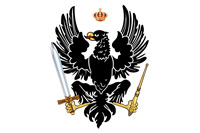 The Kingdom of Prussia was a German kingdom that constituted the state of Prussia between 1701 and 1918. It was the driving force behind the unification of Germany in 1871 and was the leading state of the German Empire until its dissolution in 1918. Although it took its name from the region called Prussia, it was based in the Margraviate of Brandenburg. Its capital was Berlin. and Austria.
The Kingdom of Prussia was a German kingdom that constituted the state of Prussia between 1701 and 1918. It was the driving force behind the unification of Germany in 1871 and was the leading state of the German Empire until its dissolution in 1918. Although it took its name from the region called Prussia, it was based in the Margraviate of Brandenburg. Its capital was Berlin. and Austria.
HISTORY
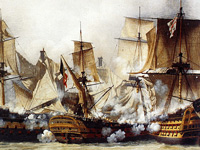
RESOURCES
This article uses material from the Wikipedia article "Napoleonic Wars", which is released under the Creative Commons Attribution-Share-Alike License 3.0.
© Stories Preschool. All Rights Reserved.
